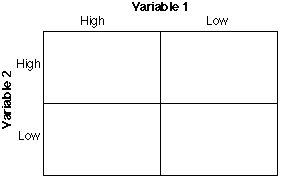This is excellent from one for Israel.org
Golgotha is the peak of humanity’s greatest crimes — pride, rivalry, blame, violence, domination and such, which were met with judgment. Judgment of the human system called “civilization” for what it really is: a war over power and control enforced by violence so corrupted that it is even capable of murdering God Himself – in the name of “truth and justice”.
But it’s not all bad news. Golgotha is also where we experienced the ultimate love of God in its greatest form – sacrificial love. Jesus, even as he was lynched in the name of religious truth and imperial justice, was able to express God’s heart in one sentence, as He plead for God to forgive us, for we do not know what we do. At the cross, we discover the deepest level – not of God’s wrath and anger, but of God’s love and grace. Although He could have killed men for the sake of justice and set His Son free, He chose to allow His Son to die in the name of love – for ours sake.
The cross is both hideous and glorious, simultaneously ugly and beautiful. It’s as disgusting as human sin and as marvelous as divine love. It is a perfect demonstration of Paul’s line of thought when he claimed, “where sin increased, grace abounded all the more.” (Rom 5:20).
What the cross is not is a place where an angry God unloaded and discharged His frustrations and anger with humanity. Jesus did not save us from God, but revealed God as a loving Savior willing to lay down His own life so ours can be forgiven.
The understanding that God
allowed us to reject, torture and kill His Son, voids the concept of a monstrous deity requiring a virgin to be thrown into a volcano, a baby to be burnt or a firstborn son to be nailed to a tree in order to satisfy his wrath and calm him down. Although we met with the depths of human depravity, we also met with the depth of God’s love for us, gaining His forgiveness.
Jesus was “sacrificed by the Father” only in the sense of the Father sending his Son into human civilization in order to reveal to us how corrupt and sinful we are – so sinful that we even murdered God Himself. God did not will the murder of His Son, He simply knew it would occur and allowed it.
Three centuries before Christ, Plato, knowing the human heart and the evil of civilization, predicted exactly that: “our just man will be scourged, racked, fettered…and at last, after all manner of suffering, will be crucified.”
[31]
The death of Jesus was a sacrifice. But it was a sacrifice to end sacrificing, not a sacrifice to appease the appetite of some angry gods. It was not God who needed the sacrifice of Jesus, it was us, the human civilization who needed it.
Paul wrote that God was in Christ reconciling the world to Himself (2 Corinthians 5:19). And this should not be misunderstood as God reconciling Himself to the world. Jesus did not die for God’s sake, but for ours.
The crucifixion is not what God inflicts upon Jesus in order to forgive, the crucifixion is what God in Christ endures as He forgives. The cross is where God absorbs sin and recycles it into forgiveness.
The great plan of the cross was not an attempt to change God’s mind about us, but an attempt to change our minds about God. God is not a Caiaphas seeking a sacrifice. God is not a Pilate requiring an execution. God is Jesus, absorbing sin, forgiving sinners. That makes the gospel all about forgiveness, rather than about payment and punishment. It makes the gospel all about love, rather than all about wrath.
The conclusion is this: It was not God who killed Jesus. It was us, human civilization, who killed Jesus. But the all-knowing, all-loving God knew we would reject His Son, yet allowed it in order for Jesus to become the ultimate once and for all sacrifice for our sake.
@sethproton
@dizerner
hope this helps !!!

